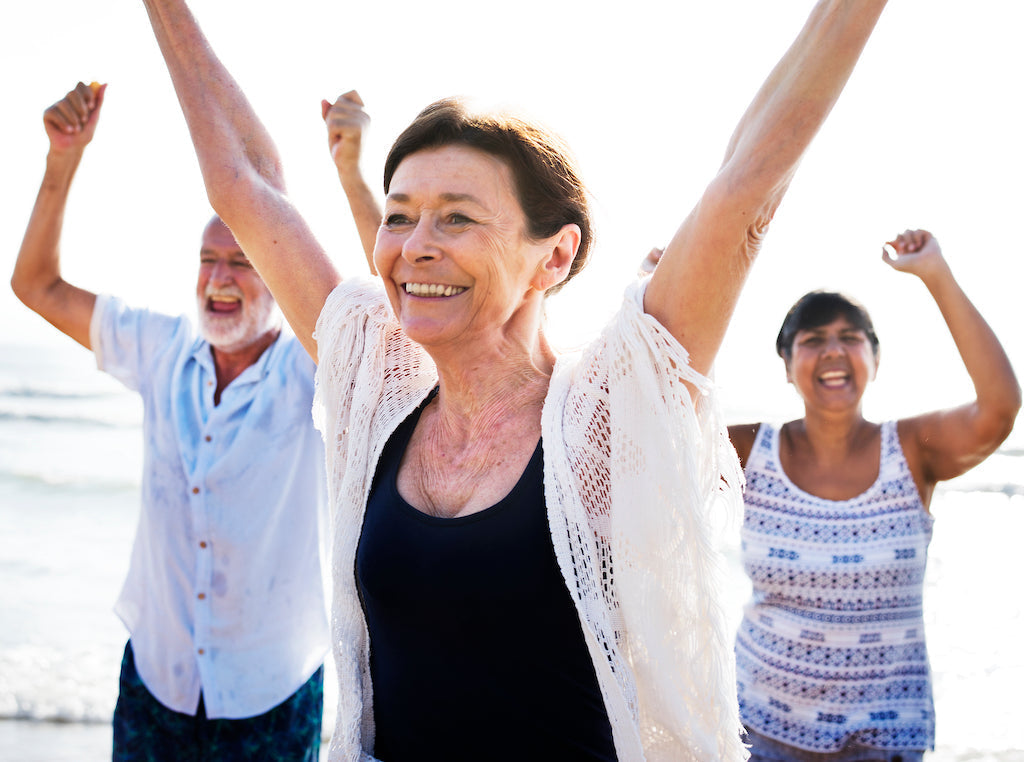
Senior Care Guide: What to Do if Your Sweat Smells Like Ammonia
Koko HayashiShare
People say that seniors smell different from younger people – and it’s true.
As we grow old, we develop a sweet, musty, and often greasy body odor. This is why all senior residences and living facilities smell the same. This ‘old people scent’ is often associated with poor hygiene, which is nothing but a huge misconception!
The truth is that body odor change is an inescapable reality of aging. These changes happen naturally as we age, and there’s nothing we can do to prevent it. There are, of course, logical reasons for it.
Why Seniors Smell Different
A study published in the Journal of Investigative Dermatology suggests that human body odor tends to change with age because of a substance called 2-Nonenal. Japanese researchers analyzed the body odor of people between the ages 26 and 75 to determine if there was any difference. They confirmed the presence of 2-Nonenal in the bodies of the participants who were 40 years old or above. This substance was found to have an unpleasant greasy, grassy odor. It was concluded that the level of 2-Nonenal tends to increase with age, which explains the unusual, displeasing smell in older people.
2-Nonenal is believed to be produced upon the degradation of omega-7 unsaturated fatty acids on the skin through oxidation. When you reach the age of 40, the production of fatty acids in your skin escalates as a natural response to the deterioration of the antioxidant defenses. In women, hormonal changes like menopause may also facilitate this chemical process.
As you grow older, your skin loses its strength and elasticity. This means its natural oils start oxidizing more quickly, producing more 2-Nonenal. Since this chemical compound isn’t water-soluble, it remains on your skin despite washing. This explains how the unpleasant smell persists on the body and even on clothes, no matter how much older adults focus on their hygiene.
While this sounds pretty convincing, experts are still trying to fully understand the cause of unpleasant body odor in the elderly.
A probable cause presented by experts is the interaction between your skin gland secretions and the bacteria on your skin. The types of bacteria residing on your skin tend to change over time and so do the chemicals and compounds found in your body.
Experts also believe that evolution likely has a role in age-related body odor change because humans seem to have a distinct smell in different life stages.
What Should You Do if Your Sweat Smells Like Ammonia?
Many older people complain that their sweat smells like ammonia. If you want to know why, here’s a simple explanation:
The amino acids in your body break down to form ammonia. Amino acids are the building blocks of protein. If you’re on a high-protein, low-carb diet, your body will automatically start breaking down amino acids for energy instead of using carbohydrates and fats. It will then chemically strip the nitrogen atom of the amino acid molecule and convert it into glucose fuel. The nitrogen is then processed in the kidneys, resulting in the production of urea for excretion. In case your kidneys are unable to handle the load of urea, your body starts getting rid of the excess ammonia in the form of sweat.
In some people, ammonia-smelling sweat may be a sign of liver or kidney problems. If you’re concerned about it, you should consider consulting with a doctor. They will run some blood tests and do a physical examination to determine the cause.
Now that you know why your sweat smells like ammonia, let’s discuss what you can do to prevent it.
For starters, you need to drink plenty of fluids to make urea excretion easier. You must also ensure adequate consumption of carbohydrates and fats in your diet. In case you have a health condition that causes your sweat to smell like ammonia, you must ask for appropriate prevention tips from your doctor.
Can You Get Rid of the Elderly Scent?
Just like traditional body odor, the unpleasant scent caused by 2-Nonenal in older adults can be reduced significantly by following a healthy lifestyle. It is recommended for seniors to exercise regularly, eat a healthy diet, refrain from smoking and drinking, stay hydrated, maintain a healthy sleep schedule, and avoid stress as much as possible.
People generally use deodorants and antiperspirants to mask body odor. Antiperspirants contain aluminum-based compounds that block the sweat pores temporarily. Deodorants, on the other hand, help get rid of body odor but do nothing to prevent perspiration. Most deodorants are alcohol-based and they make your skin acidic to repel bacteria. Oftentimes, they contain fragrances to mask body odor.
Below are a few general senior care tips to help you reduce body odor.
- Daily Hygiene – Shower every day and dry your feet thoroughly to prevent bacteria buildup.
- Footwear Habits – Rotate shoes, wear breathable natural materials (leather, cotton, wool), and avoid wearing the same socks more than once.
- Clothing Choices – Choose cotton or moisture-wicking fabrics instead of synthetic materials to stay dry.
- Lifestyle & Stress – Practice relaxation methods (yoga, meditation, biofeedback) to reduce stress-induced perspiration.
- Diet – Limit foods and drinks that cause ammonia-like or strong odors (e.g., garlic, onions, certain proteins).
Learn more about how to avoid Nonenal, the hidden cause of aging odor.
Modern-day Senior Care: Introducing Special Body Care Products
After the discovery of 2-Nonenal, there has been an upsurge in the production of personal care products for the elderly, specially designed to minimize the ammonia-like body odor. You can find a variety of soap bars with deodorizing properties in Japan and across the world.
While many people are not bothered by the fact that older adults smell different, you may want to keep smelling good to feel confident.
If you’re concerned about age-related body odor change and want to minimize it, you’d love the body care collection Mirai Clinical has to offer! They rely on natural solutions for age-related problems and use Japanese persimmon as the key ingredient in their products.
